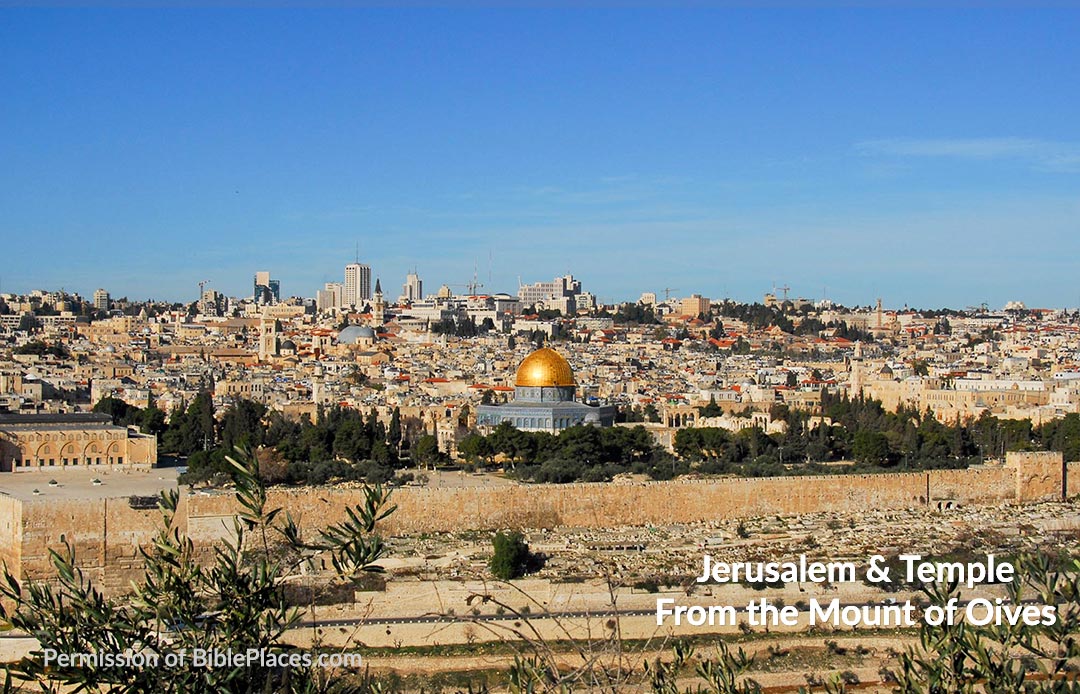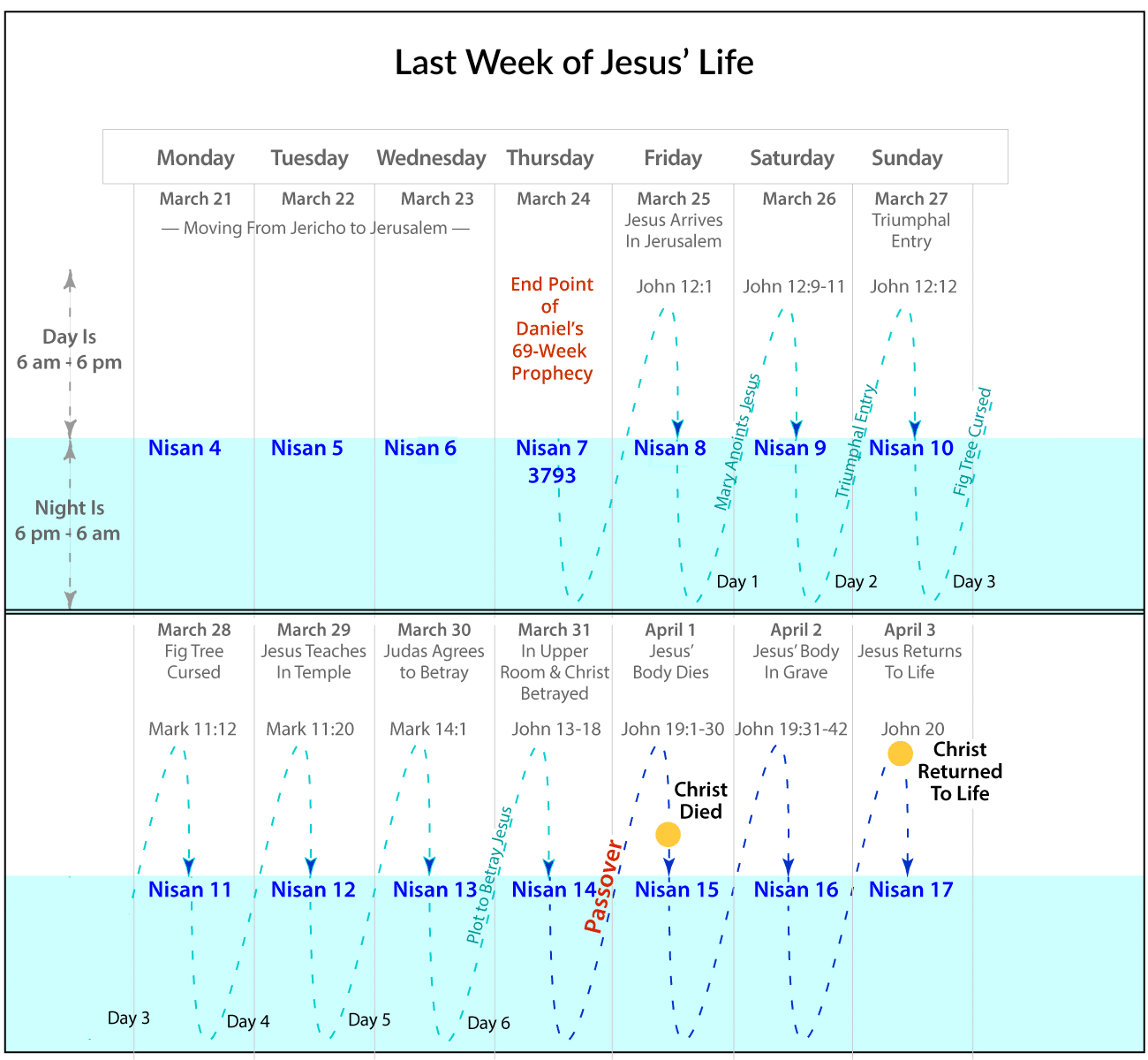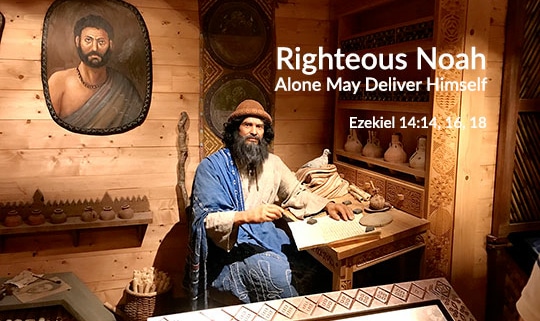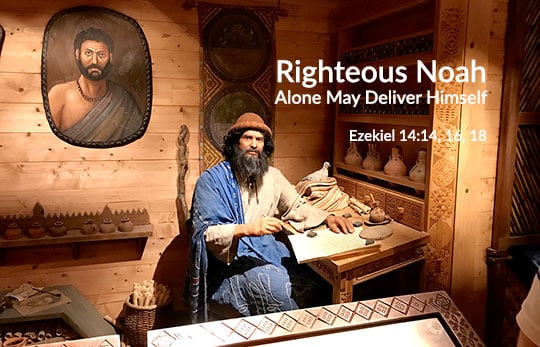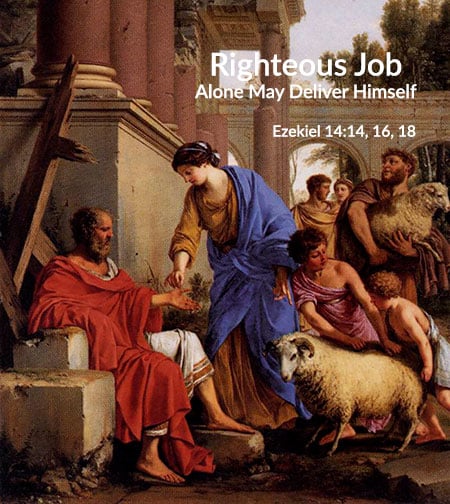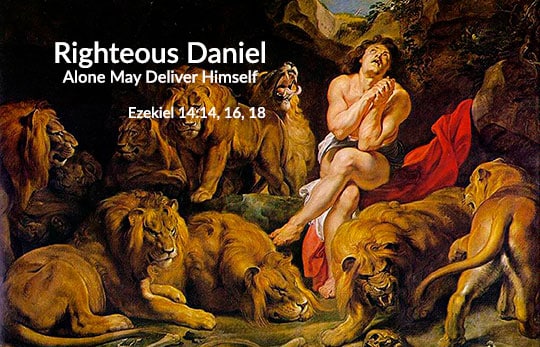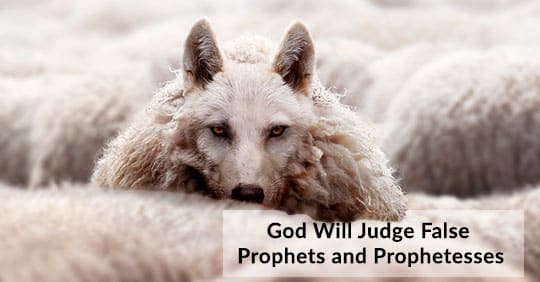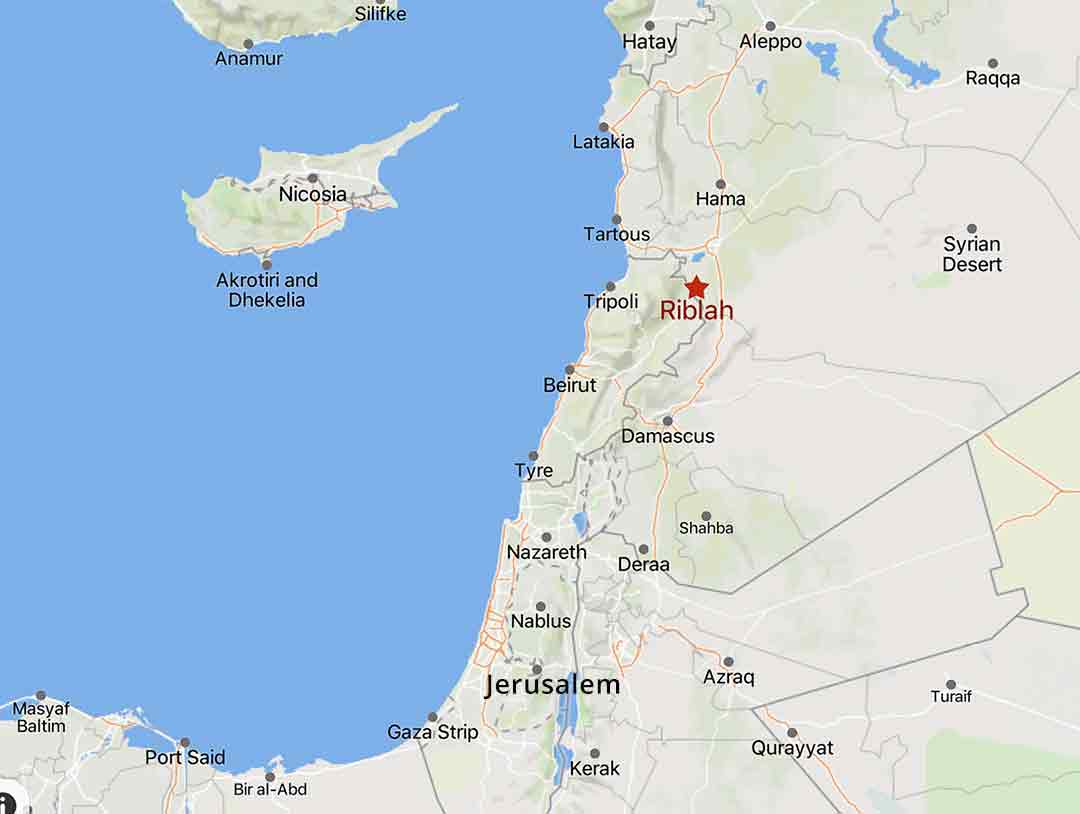Parable of Two Great Eagles and The Vine

The book of Ezekiel is a prophetic book that warned and affirmed. It warned the Jewish people of a massive future slaughter of the people in the city of Jerusalem except for a remnant. It also warned that Jerusalem and the temple would be burned to the ground. These three events would occur because the people had abandoned Yahweh and put idols in their hearts. As a result, they committed horrible sexual sins, killed some of their children, made their children walk through the fire of Moloch, indulged in abundant food, enjoyed careless ease, and were very arrogant. They refused to repent and turn to Yahweh and so He prophesied and warned them of the future judgment.
The book of Ezekiel also affirmed that it was written by Yahweh because it gave detailed information about future events that came true. Yahweh proved to the Jewish people who were alive in 593-583 B.C. that “I am the Lord; I have spoken.” For Deuteronomy 18:20-22 states that the proof Yahweh has spoken is that what His prophet speaks will come true.
First Great Eagle
Our study is Ezekiel 17, except for the last three verses. It is about the last king who reigned in Jerusalem before the Babylonian army slaughtered the people and burned both the city and Solomon’s temple. That is a quick snapshot of the chapter. The chapter is divided into three sections. Verses 1-10 are the parable. Verses 11-21 are the interpretation of the parable, and verses 22-24 are the conclusion, which we will leave to the next study.
Verses 1-2 say,
Now the word of the LORD came to me saying, “Son of man, propound a riddle and speak a parable to the house of Israel . . .” Ezekiel 17:1-2 (NASB)
Once again, Yahweh speaks. The phrase, “the word of the LORD” introduces another prophecy. This has been the pattern since chapter 12. Then verse 2 reveals that Yahweh gave the prophet Ezekiel a riddle and a parable. It is a riddle because its meaning is not clear and it is a parable because of the symbolic imagery used by Yahweh. Jesus also spoke in parables when He walked on this planet and taught the people. It captures our attention and causes us to think while communicating important truths.
Verse 3 starts the parable. The explanation will begin in verse 11. Here are verses 3-4,
“. . . saying, ‘Thus says the Lord GOD, “A great eagle with great wings, long pinions and a full plumage of many colors came to Lebanon and took away the top of the cedar. He plucked off the topmost of its young twigs and brought it to a land of merchants; he set it in a city of traders.”’” Ezekiel 17:3-4 (NASB)
The parable begins with a great eagle with great wings, long pinions, and very colorful plumage. This eagle symbolizes great power as the eagle is considered the king of the birds. We are told the eagle came to Lebanon. Lebanon symbolized the city of Jerusalem for King David had built his home of cedar from Lebanon (2 Samuel 5:11) Then King Solomon had imported cedars from Lebanon to build the temple and his own house (1 Kings 4:33; 6:9-10, 15-20, 36; 7:1-2). He may have used cedar wood to build parts of the city also. So, we are being told the eagle plucked off the top of the cedar tree, that is Jerusalem, and all of its young twigs and brought it to another city, the city of Babylon, a place of great commerce.
The meaning of this part of the parable is given to us in verses 11-12.
Moreover, the word of the LORD came to me, saying, “Say now to the rebellious house, ‘Do you not know what these things mean?’ Say, ‘Behold, the king of Babylon came to Jerusalem, took its king and princes and brought them to him in Babylon.’” Ezekiel 17:11-12 (NASB)
Once again, the prophet Ezekiel speaks directly to the rebellious house of Israel. He reminds them of their sins. They were rebels who refused to obey. They lived in rebellion to Yahweh. Many teenagers are also rebellious. That helps us understand how God views our sins. We are rebels when we refuse to obey and repent of our sins. Then Yahweh asked, “Do you not know what these things mean?” That is, do you understand the parable? That was a rhetorical question. Immediately, Yahweh begins to explain the parable. The great eagle with the powerful pinions and colorful plumage symbolized the king of Babylon.
The king of Babylon came to Jerusalem and took its king and his princes to Babylon. This helps us understand that Lebanon symbolized the city of Jerusalem. The top of the cedar tree was the king of Jerusalem and the young twigs were the princes or leaders under him.
So, who is the king? 2 Kings 24:11-16 will help us understand the future events this parable is predicting,
And Nebuchadnezzar the king of Babylon came to the city, while his servants were besieging it. Jehoiachin the king of Judah went out to the king of Babylon, he and his mother and his servants and his captains and his officials. So the king of Babylon took him captive in the eighth year of his reign. He carried out from there all the treasures of the house of the LORD, and the treasures of the king’s house, and cut in pieces all the vessels of gold which Solomon king of Israel had made in the temple of the LORD, just as the LORD had said. Then he led away into exile all Jerusalem and all the captains and all the mighty men of valor, ten thousand captives, and all the craftsmen and the smiths. None remained except the poorest people of the land. So he led Jehoiachin away into exile to Babylon; also the king’s mother and the king’s wives and his officials and the leading men of the land, he led away into exile from Jerusalem to Babylon. All the men of valor, seven thousand, and the craftsmen and the smiths, one thousand, all strong and fit for war, and these the king of Babylon brought into exile to Babylon. 2 Kings 24:11-16 (NASB)
Now we understand that the top of the cedar in verse 3 symbolized King Jehoiachin. This will also become clearer in the verses to follow. The young twigs or princes were the other significant leaders of Jerusalem. King Nebuchadnezzar removed them since he did not want to leave anyone who might cause trouble for him in the future.
First Great Eagle Plants a Vine
Verses 5-6 now describe a vine in the parable.
“He also took some of the seed of the land and planted it in fertile soil. He placed it beside abundant waters; he set it like a willow. Then it sprouted and became a low, spreading vine with its branches turned toward him, but its roots remained under it. So it became a vine and yielded shoots and sent out branches.” Ezekiel 17:5-6 (NASB)
Now we are told the great eagle took some seed of the land and planted it in fertile soil beside abundant waters. The reference to a willow tree reveals the seed had all the water it needed because willow trees require a great amount of water. Then we are told the seed grew into a vine and spread everywhere.
Verses 13-14 explain this part of the parable. They are about King Nebuchadnezzar. They say,
“‘He took one of the royal family and made a covenant with him, putting him under oath. He also took away the mighty of the land, that the kingdom might be in subjection, not exalting itself, but keeping his covenant that it might continue.’” Ezekiel 17:13-14 (NASB)
So, the vine that grew from the seed symbolized a member of the royal family of Jehoiachin. This individual was Zedekiah. Everything in this chapter is about King Zedekiah, except for the last three verses. That means Yahweh is using this king to teach us an important principle. Verses 13-14 tell us he made a covenant with King Nebuchadnezzar in order to become king. We are also told King Nebuchadnezzar took away all the significant leaders of the land in an attempt to ensure that the covenant would be maintained. Again, 2 Kings 24 helps us understand what happened when the prophecy was fulfilled. Here is 2 Kings 24:17,
Then the king of Babylon made his uncle Mattaniah king in his place, and changed his name to Zedekiah. 2 Kings 24:17 (NASB)
Notice that Mattaniah was Jehoiachin’s uncle. He was not directly in the line to become the king, but he was from the royal family. So, Yahweh referred to him as “one of the royal family” in Ezekiel 17:13. Mattaniah’s name was changed to Zedekiah. 2 Chronicles 36:13 gives us more information about him and tells us that he had to swear allegiance by Yahweh to King Nebuchadnezzar in order to become the king over Jerusalem. This is important to remember as we continue our study.
Second Great Eagle and The Vine
Now back to the parable again. Verses 7-8 say,
“But there was another great eagle with great wings and much plumage; and behold, this vine bent its roots toward him and sent out its branches toward him from the beds where it was planted, that he might water it. It was planted in good soil beside abundant waters, that it might yield branches and bear fruit and become a splendid vine.”’ Ezekiel 17:7-8 (NASB)
The great eagle in verse 7 is another great eagle. This second eagle is different than the first one. This eagle does not have great pinions. That is, he is not as lethal or as powerful as the first eagle. We are also told the vine “bent out” to this second eagle. The Hebrew word for “bent out” is kapan. It refers to the idea of seeing water or being hungry. In this context it refers to the vine eagerly seeking water. Even though it was planted in good soil and was like a willow next to plenty of water, it was seeking yet another source for water so it could produce more fruit and become splendid.
The first part of verse 15 explains these two verses. This verse describes the puppet king, King Zedekiah.
“‘But he rebelled against him by sending his envoys to Egypt that they might give him horses and many troops.’” Ezekiel 17:15a (NASB)
The prophecy states that King Zedekiah rebelled against King Nebuchadnezzar and sent envoys to Egypt. That explains the vine seeking another source of water. At the time this prophecy was fulfilled, the pharaoh of Egypt was Hophra. He came to the throne in 588 B.C. He was a new king. Zedekiah was seeking an army to free himself and Jerusalem from King Nebuchadnezzar. So he reached out to this new pharaoh of Egypt. He did this contrary to warnings given by the prophets Isaiah and Jeremiah (Isaiah 30:1-2; Jeremiah 37:7). They warned him that he would not succeed.
Will the Vine Succeed?
Now we return to the last part of the parable. In verses 9-10 Yahweh says,
“Say, ‘Thus says the Lord GOD, “Will it thrive? Will he not pull up its roots and cut off its fruit, so that it withers — so that all its sprouting leaves wither? And neither by great strength nor by many people can it be raised from its roots again. Behold, though it is planted, will it thrive? Will it not completely wither as soon as the east wind strikes it — wither on the beds where it grew?”’” Ezekiel 17:9-10 (NASB)
The rhetorical question is, “Will the vine succeed?” The same question is given in the interpretation in the last of verses 15 through 21,
“‘Will he succeed? Will he who does such things escape? Can he indeed break the covenant and escape? As I live,’ declares the Lord GOD, ‘Surely in the country of the king who put him on the throne, whose oath he despised and whose covenant he broke, in Babylon he shall die. Pharaoh with his mighty army and great company will not help him in the war, when they cast up ramps and build siege walls to cut off many lives. Now he despised the oath by breaking the covenant, and behold, he pledged his allegiance, yet did all these things; he shall not escape.’” Therefore, thus says the Lord GOD, “As I live, surely My oath which he despised and My covenant which he broke, I will inflict on his head. I will spread My net over him, and he will be caught in My snare. Then I will bring him to Babylon and enter into judgment with him there regarding the unfaithful act which he has committed against Me. All the choice men in all his troops will fall by the sword, and the survivors will be scattered to every wind; and you will know that I, the LORD, have spoken.” Ezekiel 17:15b-21 (NASB)
The answer to Yahweh’s rhetorical question was, “No!” The vine will not succeed. King Zedekiah would fail to free himself from King Nebuchadnezzar. His alliance with the pharaoh was unsuccessful. Did you notice the reason why Zedekiah did not succeed? Yahweh said, “He despised the oath by breaking the covenant” that he made with King Nebuchadnezzar. What made his oath more serious was that Zedekiah swore by Yahweh. 2 Chronicles 36:11-21 states,
Zedekiah was twenty-one years old when he became king, and he reigned eleven years in Jerusalem. He did evil in the sight of the LORD his God; he did not humble himself before Jeremiah the prophet who spoke for the LORD. He also rebelled against King Nebuchadnezzar who had made him swear allegiance by God. But he stiffened his neck and hardened his heart against turning to the LORD God of Israel. Furthermore, all the officials of the priests and the people were very unfaithful following all the abominations of the nations; and they defiled the house of the LORD which He had sanctified in Jerusalem.
The LORD, the God of their fathers, sent word to them again and again by His messengers, because He had compassion on His people and on His dwelling place; but they continually mocked the messengers of God, despised His words and scoffed at His prophets, until the wrath of the LORD arose against His people, until there was no remedy. Therefore He brought up against them the king of the Chaldeans who slew their young men with the sword in the house of their sanctuary, and had no compassion on young man or virgin, old man or infirm; He gave them all into his hand. All the articles of the house of God, great and small, and the treasures of the house of the LORD, and the treasures of the king and of his officers, he brought them all to Babylon. Then they burned the house of God and broke down the wall of Jerusalem, and burned all its fortified buildings with fire and destroyed all its valuable articles. Those who had escaped from the sword he carried away to Babylon; and they were servants to him and to his sons until the rule of the kingdom of Persia, to fulfill the word of the LORD by the mouth of Jeremiah, until the land had enjoyed its sabbaths. All the days of its desolation it kept sabbath until seventy years were complete. 2 Chronicles 36:11-21 (NASB)
So, we have read the parable and the explanation has been given. We have also discovered how the prophecy was fulfilled. It was a masterful riddle-parable-prophecy.
Conclusion
But before we conclude the chapter, we need to notice two important principles. The first reason this parable was given is revealed in Ezekiel 17:21. “You will know that I, the LORD, have spoken.” That has been Yahweh’s repeated message since chapter 12. The parable would prove that Yahweh had been speaking to them through His prophets. The second reason this parable was given was to teach us that failure to keep an oath can result in punishment. If we make an oath we must keep it. Remember this parable builds up to King Zedekiah and ends with his sons being killed, his eyes being plucked out, and being taken to Babylon (2 Kings 25:7). This all happened because Yahweh said King Zedekiah “despised the oath by breaking the covenant, and behold, he pledged his allegiance.” The point is that King Zedekiah was not serious about his oath to King Nebuchadnezzar so he broke his oath, his allegiance. In addition, Yahweh said, “surely My oath which he despised and My covenant which he broke.” 2 Chronicles 36:13 adds that he swore allegiance by God. In someway, he obligated Yahweh when he made the oath before King Nebuchadnezzar. So, this is a warning to keep our oaths, vows, or promises or not make them. We remember that Jesus said this about oaths and keeping promises.
“But I say to you, make no oath at all, either by heaven, for it is the throne of God, or by the earth, for it is the footstool of His feet, or by Jerusalem, for it is THE CITY OF THE GREAT KING. Nor shall you make an oath by your head, for you cannot make one hair white or black. But let your statement be, ‘Yes, yes’ or ‘No, no’; anything beyond these is of evil. Matthew 5:34-37 (NAS)
Jesus’ point is that we should not make oaths, vows, and promises by anything. Say yes or no! Psalm 15:4 says this about the righteous man,
He swears to his own hurt and does not change. Psalm 15:4 (NASB)
The message is that God expects a righteous man or woman to keep their promises even if hurts us. James 5:12 encourages us to keep our commitments,
But above all, my brethren, do not swear, either by heaven or by earth or with any other oath; but your yes is to be yes, and your no, no, so that you may not fall under judgment. James 5:12 (NASB)
Then in James 4:13-17 we told to not make an oath but,
Instead, you ought to say, “If the Lord wills, we will live and also do this or that.” James 4:15 (NASB)
We should recognize that God may have a different plan for our lives.
That is the end of this. We will leave verses 22-24 about the future messianic kingdom for our next study.




